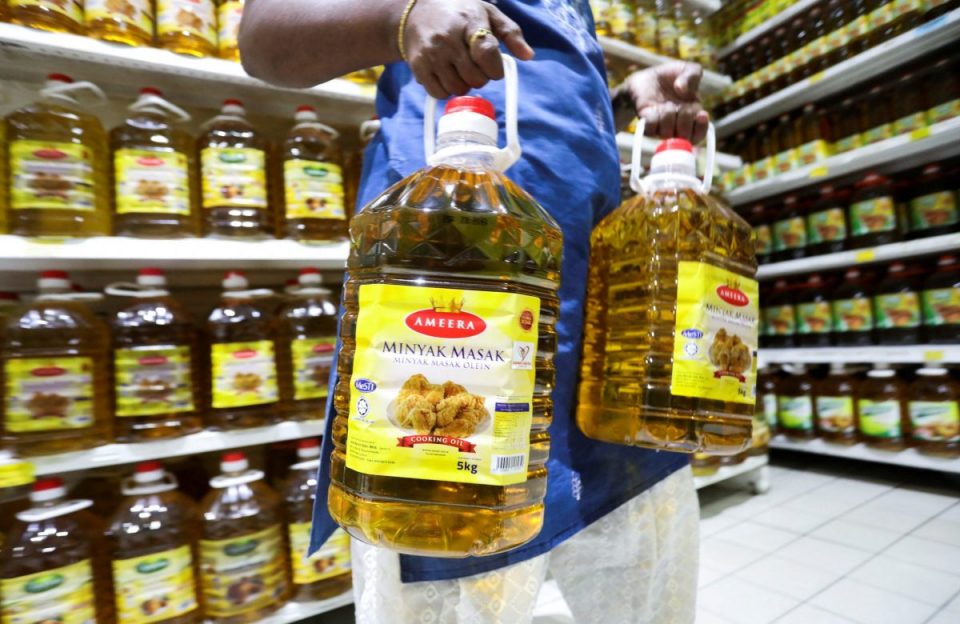BEIJING, Nov 20 — Malaysia has a huge potential to cement its presence in China’s market for palm oil and palm oil-based value-added products over the next three to five years while reducing further its dependence on the European market, said the Malaysian Palm Oil Board (MPOB).
Chairman Datuk Mohamad Helmy Othman Basha acknowledged that China’s import volume of the commodity from Malaysia has slowly declined in recent years, but said that Malaysia is now focusing on exporting more value-added products to the country.
“This is what we are (seeking) right now. We have no problem with Indonesia exporting a big volume of crude palm oil worldwide.
“As for Malaysia, we want them (China) to import higher value-added products (from us) and we are seeing an improvement (in this area) year-on-year,” said Mohamad Helmy, who was part of a palm oil promotion mission to China headed by Deputy Prime Minister Datuk Seri Fadillah Yusof, who is also Plantation and Commodities Minister.
He said the Palm Oil Research and Technical Service Institute of Malaysian Palm Oil Board (PORTSIM), founded in 2005, has created between three and eight new value-added products using palm oil annually to cater to Chinese consumer needs.
“Chinese consumers now are very sophisticated. They require better health products, better nutrients and, of course, sustainable products, and our sustainable palm oil is the answer. So, we are on the right track,” Mohamad Helmy said.
He added that Chinese food and non-food manufacturers are currently facing a shortage of tallow (animal fat) for their products, and there is potential for Malaysia to replace that with palm oil.
Meanwhile, Malaysian Palm Oil Council chief executive officer Belvinder Sron said China is more conscious about environmental, social and governance requirements because it is exporting to other countries.
“We are in a good position to help China meet that demand because we already have our Malaysian Sustainable Palm Oil (MSPO) certificate (which) is a competitive edge we have against other palm oil producing countries.”
She urged Malaysian companies to be more aggressive in penetrating the Chinese market with its 1.4 billion population and to make frequent visits to be closer to their buyers.
She said there are untapped opportunities in both the food and non-food sectors.
Belvinder said the future expansion strategy for Malaysian palm oil will be in Asean.
“But China and India will remain our prime markets. Next will be the Middle East market and the African continent.
“We cannot (rely) on the European Union when it is coming out with so many regulations that are impacting our exports.”
Malaysian Palm Oil Certification Council chief executive officer Mohd Shahari Idris, also part of Fadillah’s delegation, said Malaysia could no longer open new plantations due to restrictions relating to the European Union Deforestation Regulation (EUDR).
“We really have to work on how we can add value in terms of oil extraction rate. One way to do that is by using good planting materials.
“Apart from that, we should not the loose fruits go to waste but should collect and put them to good use.
“They can help raise the oil extraction rate, but we must incentivise workers collecting these detached fruits because these were not collected previously,” he said, adding that fruits become detached from the bunches when the bunches ripen.
Meanwhile, concluding his mission to China, Fadillah said China has committed to raising its palm oil imports to 3.4 million tonnes next year versus the estimated 3.14 million tonnes so far.
He also described this visit as the most successful palm oil mission for 2023. Fadillah also went to the EU and Kenya to promote Malaysian palm oil.
China has been Malaysia’s largest trading partner for the past 14 years.
Agri-commodity exports to China comprised 12.8 per cent, or RM26.46 billion, of Malaysia’s total agricultural commodity exports in 2022, an increase of 11 per cent from 2021.
Palm oil-based products and palm oil exports to China totalled RM16.41 billion and RM8.44 billion, respectively, in 2022.
— Bernama





